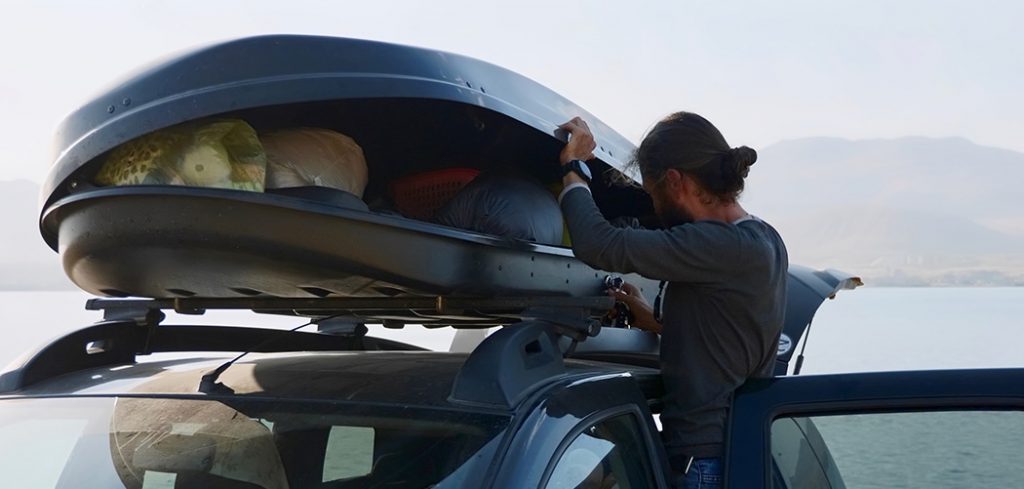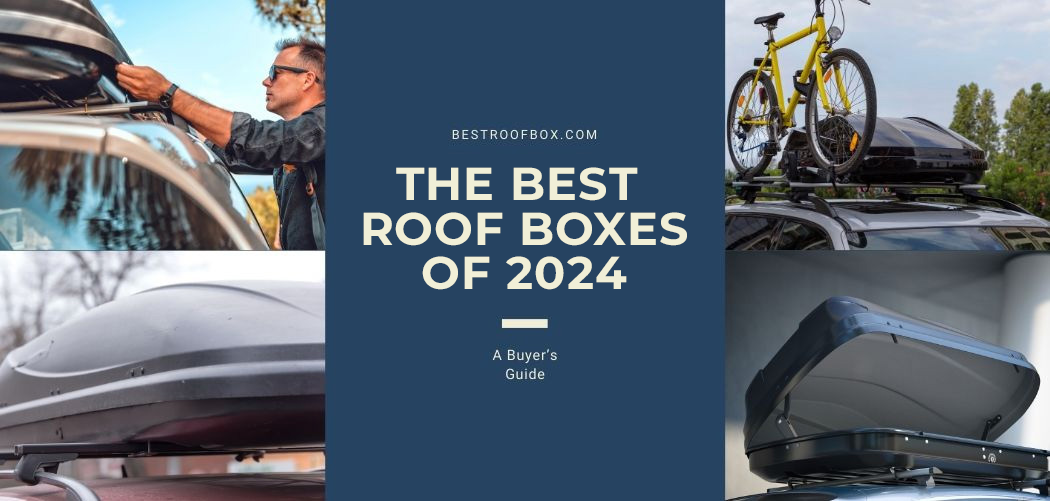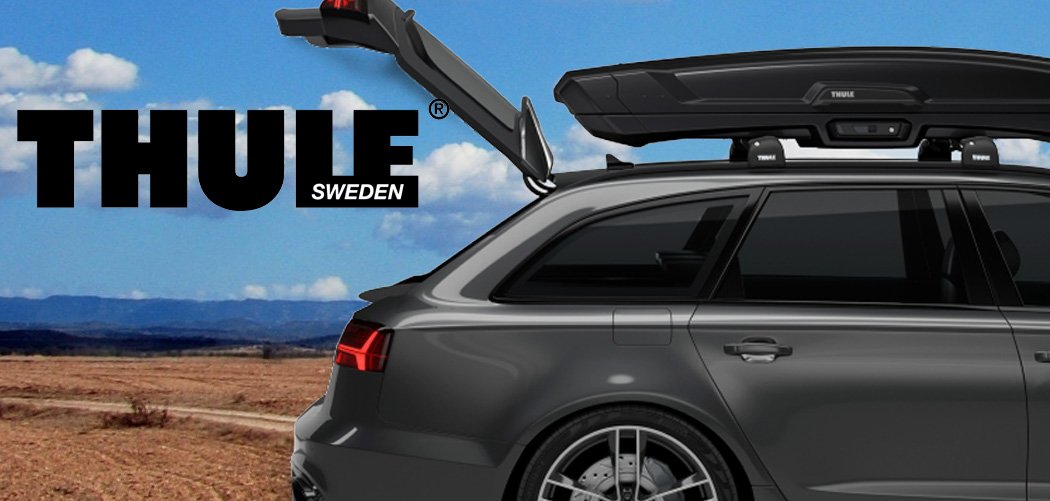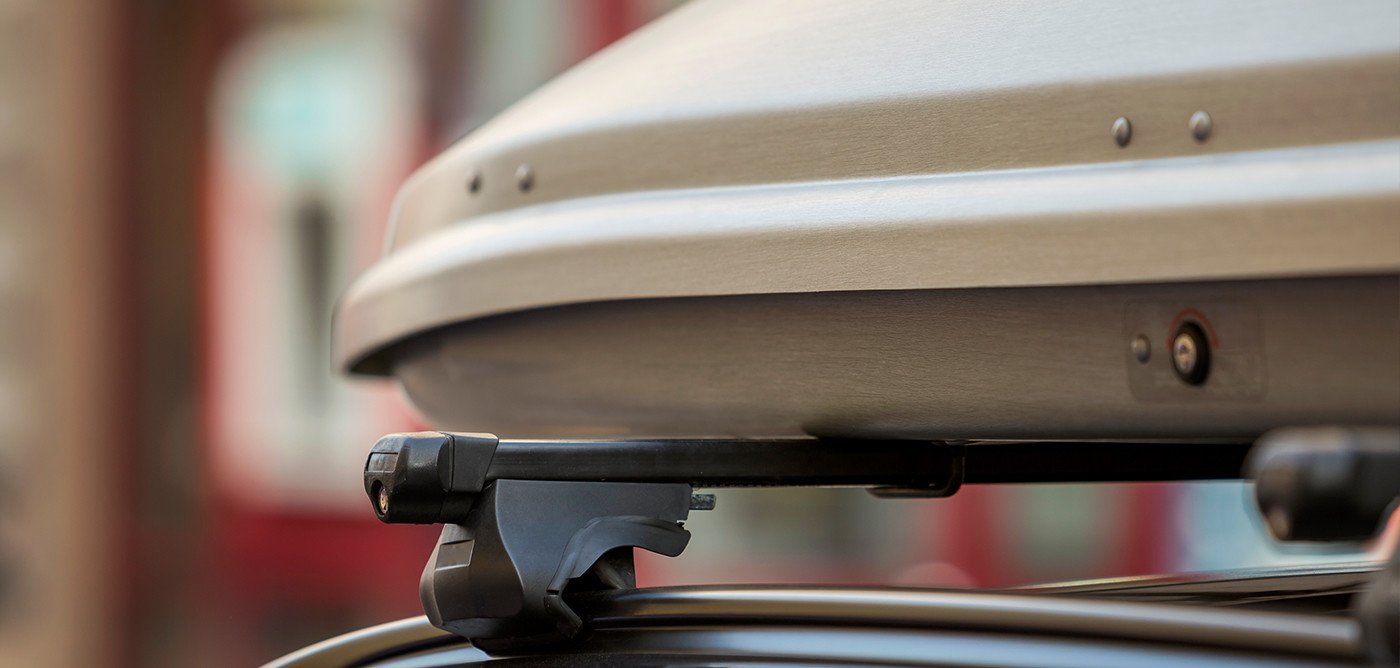Roof box safety should be a major concern before travelling.
If you’ve never before had a rooftop box on the top of your vehicle, you might not know how to get started when it comes to packing your things safely but do not worry.
Choosing the right roof box and making sure that everything is stored in it so that the items are secure is easier than you think and it all starts with making sure that you have the right rooftop carrier in the first place.
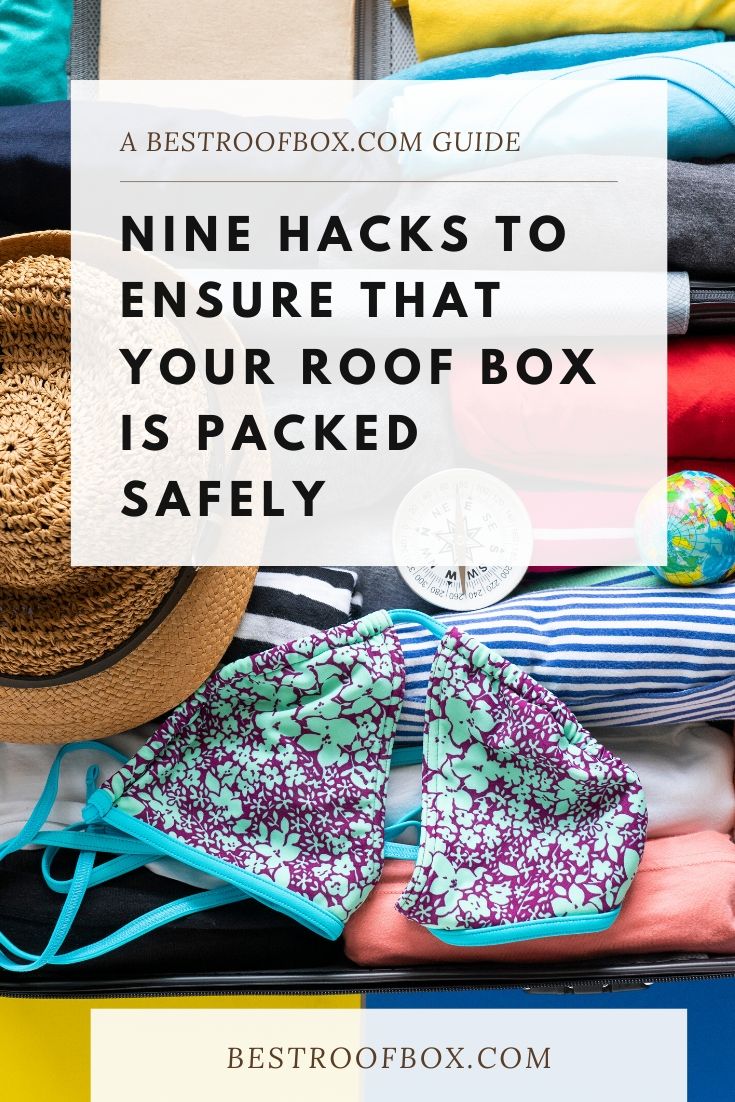
There are many types of rooftop carriers but they are broken down into three main kinds: the hard-shell type, or box carrier; the ones made out of soft materials, usually called carrier bags; and a basket, which is usually made out of stainless steel or some other sturdy material.
Most are made to fit any vehicle that you own; of course, it’s always a good idea to check with the manufacturer just to make sure that the carrier will fit your car or truck.
Packing up your belongings can be done a certain way in order for the items to be safe and secure while in the carrier. If you’re looking for hacks for roof box packing for even better results, below are some tips that can help you.
Table of Contents
9 Hacks to Ensure Roof Box Safety
1. Choose the Correct Rooftop Carrier First
 If you already know that you have a lot of items to pack in your rooftop carrier, you might as well choose a larger one from the beginning. Carriers are sold by the amount of cubic feet of space they provide, which can range from 8 to 20 or more cubic feet. If you have a lot of skis, fishing poles, or suitcases you’d like to pack in your carrier, go ahead and choose a carrier that gives you 20 cubic feet of space just to be on the safe side.
If you already know that you have a lot of items to pack in your rooftop carrier, you might as well choose a larger one from the beginning. Carriers are sold by the amount of cubic feet of space they provide, which can range from 8 to 20 or more cubic feet. If you have a lot of skis, fishing poles, or suitcases you’d like to pack in your carrier, go ahead and choose a carrier that gives you 20 cubic feet of space just to be on the safe side.
If you end up using less than 20 cubic feet of space, it’s no big deal and it is certainly better than finding out that your carrier is much too small for your needs.
If you decide on a carrier that offers 20 cubic feet of extra space and you don’t want to spend a lot of money on it, you might try the thick cargo roof bag made by Xuliyme because it is large enough to meet your needs and is extra thick for durability and strength.
It is also waterproof and easy to store away when you’re not using it.
2. Store Heavier Items in the Trunk First
Until you run out of room in your trunk, you should always consider putting your heavier items in there first. After all, your trunk is naturally going to have a heavier weight limit than any carrier you own so it’s best to keep heavier suitcases and other items in there whenever possible.
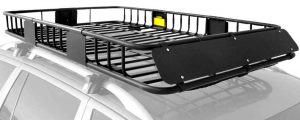 If you do decide to put suitcases in your carrier and that’s all you’ll be storing there, you might want to consider a rooftop carrier basket, which can usually fit two or more suitcases depending on their size.
If you do decide to put suitcases in your carrier and that’s all you’ll be storing there, you might want to consider a rooftop carrier basket, which can usually fit two or more suitcases depending on their size.
The XCAR carrier basket is a high-quality basket made with a powder coating to keep it looking good for many years. Its six-inch siding ensures that nothing you pack there will ever fall out or become damaged.
It also holds up to 150 pounds of weight; therefore, your suitcases can be quite heavy and still remain safe and secure once they’re loaded.
3. Make Sure That the Weight Is Distributed Evenly
When you’re loading your belongings in a rooftop carrier, make sure that the weight of those items is distributed evenly. If you have a heavy suitcase and some lighter items, make sure that the suitcase is placed in there first and is situated in the middle of the carrier. Place your lighter items, including sporting equipment such as ski racks and fishing poles, on top of the heavier items.
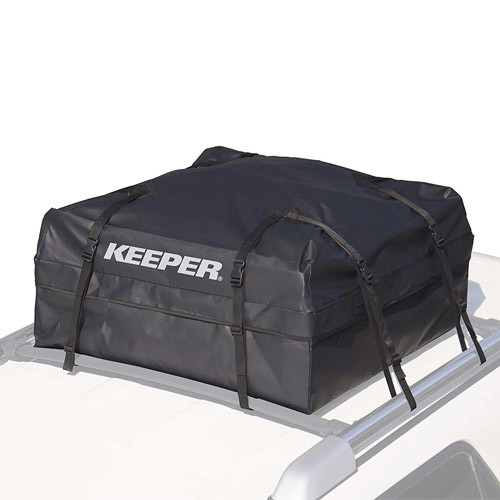 In addition, if you only have a few items to store in your carrier, finding a smaller one is a great idea. Keeper offers a great carrier bag that provides 11 cubic feet of extra space, making it one of the smaller bags on the market.
In addition, if you only have a few items to store in your carrier, finding a smaller one is a great idea. Keeper offers a great carrier bag that provides 11 cubic feet of extra space, making it one of the smaller bags on the market.
It is also a steal at around $50 and it has soft flexible sides to accommodate items that are unusual sizes or shapes.
Even with smaller bags, making sure that the weight is distributed evenly is important. Learning to pack heavier items first and lighter items last means that there is a lesser chance of the items moving around once you start driving your vehicle.
This also results in a lesser chance of a heavy item breaking a lighter item once your car gets moving because it keeps everything inside of the carrier safer and more secure. No list of hacks for roof box packing is complete without this valuable tip.
4. Consider Wrapping Items in Plastic First
This is something that many travelers do just as an extra precaution. Although most rooftop carriers are made to be 100% waterproof, many others are not. Wrapping certain items in plastic before placing them in the carrier gives you a little extra assurance that those items will remain dry for the entire trip.
When you’re researching carriers and you want something waterproof, make sure that it uses the word “waterproof” in the description because “water-resistant” and “water-repellant” are not the same as waterproof.
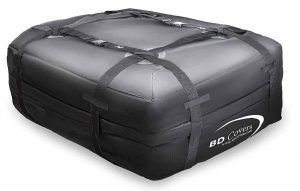 BD Covers makes a strong, 100% waterproof rooftop carrier bag that holds up to 15 cubic feet of extra items, and it usually sells for under $45.
BD Covers makes a strong, 100% waterproof rooftop carrier bag that holds up to 15 cubic feet of extra items, and it usually sells for under $45.
Even in heavy rains and bad weather conditions, this carrier will keep your belongings nice and dry the entire time and its sturdy materials mean that it will never rip, tear, or leak.
Finding a waterproof carrier means that you’ll enjoy peace of mind regardless of where you’re headed, ensuring that all you’ll have to think about is your upcoming outing.
5. Always Tie the Box/Bag Down Properly
Most rooftop carriers will come with extra-strong straps that attach either to the vehicle itself or to the roof racks. These straps will be thick and wide enough to accommodate your carrier regardless of its size or shape.
All hacks for roof box packing will include this tip because there is no such thing as making sure that your carrier is too secure. Follow the manufacturer’s instructions at all times and make sure that you use the straps in the way they were intended to be used.
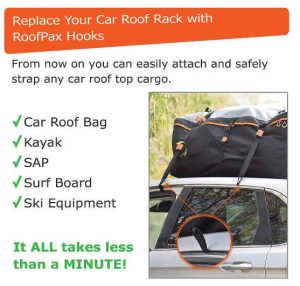 If you’ve already purchased a great rooftop carrier and you’re looking for a sturdy set of straps to make sure that it is secured properly to your vehicle, you can consider getting the tie-down hooks made by RoofPax, which come in a set of six and are made to accommodate any type of vehicle that you own.
If you’ve already purchased a great rooftop carrier and you’re looking for a sturdy set of straps to make sure that it is secured properly to your vehicle, you can consider getting the tie-down hooks made by RoofPax, which come in a set of six and are made to accommodate any type of vehicle that you own.
With these straps, you’ll never suffer unsightly marks on your vehicle because they are coated with silicon and they are 100% waterproof as well.
Just remember that regardless of how the carrier straps are supposed to be used, it is important to make sure that you adhere to the instructions so that once your carrier is packed full and secured onto your vehicle, you won’t have to worry about anything getting loose from then on.
6. Make Sure That You Obey the Manufacturer's Instructions
User manuals and detailed instructions are there for a reason so it is especially important to follow those instructions to a tee. If the weight limit for your particular carrier is 150 pounds, don’t get overconfident and decide to load 200 pounds worth of items in it.
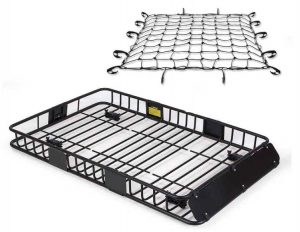 Most carriers have a weight limit between 75 and 250 pounds, which includes the weight of the carrier itself. Going over that number just increases the chances of something becoming damaged as you travel.
Most carriers have a weight limit between 75 and 250 pounds, which includes the weight of the carrier itself. Going over that number just increases the chances of something becoming damaged as you travel.
If you need an extra-sturdy carrier that has the capacity to hold up to 250 pounds worth of your belongings, you might want to consider a basket-type carrier such as the 64” carrier basket made by Smarten.
It comes with its own cargo net and even decreases noise and wind resistance. This basket is super easy to assemble and includes all of the hardware you need to make sure that it is installed properly. It also has a modern look and can add some style to your vehicle quickly.
7. Make Sure That You Get Familiar with Your Key System
Most rooftop carriers have a key that locks the system in place so that nothing falls out as you travel. It is crucial to make sure that the carrier is locked securely before you take off. Become familiar with your lock and key so that you don’t forget to lock down the carrier each time you travel.
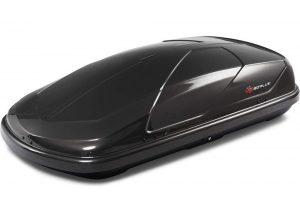 It isn’t a difficult task but it is an important one because just one act of forgetting to lock the carrier can result in a misfortune that you likely won’t want to deal with.
It isn’t a difficult task but it is an important one because just one act of forgetting to lock the carrier can result in a misfortune that you likely won’t want to deal with.
Many carriers, in fact, come with two keys in case one gets lost, which is very convenient for car owners. One of these carriers is the Goplus heavy-duty cargo box that comes in a 14-cubic-foot design.
Available in grey, black, or white, this carrier is aerodynamically designed and built to last for many years to come. It is made out of PC and ABS materials for extra sturdiness and it is easy to install as well.
If you are interested in the more important hacks for roof box packing, this is likely one of the most significant because it affects the security of the items being stored in your rooftop carrier.
8. Get Some Help!
While most people like to do certain things themselves, it is always smart to get some assistance when packing your rooftop carrier. It’s not necessarily a difficult task but it does need to be done a certain way in order to be effective and this sometimes requires two people to make sure that it is done right.
If you have to, go ahead and stand on a ladder as you pack the carrier and let someone else hand you your belongings so that you can pack them easily and without straining or doing too much bending. Of course, if you want to make things easy on yourself, it is good to choose a carrier that is also easy to remove and easy to store away when it isn’t in use.
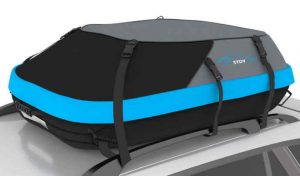 The bag-type carriers are especially good for this because they usually fold up quickly and store away in a separate bag when you’re not using them. The STDY is one of these carriers and it is waterproof, made out of soft materials, and even comes with its own storage bag.
The bag-type carriers are especially good for this because they usually fold up quickly and store away in a separate bag when you’re not using them. The STDY is one of these carriers and it is waterproof, made out of soft materials, and even comes with its own storage bag.
This doesn’t mean that you won’t need any help packing or removing the carrier but at least you’ll know that figuring out what to do with it once you’re not using it any more no longer has to be difficult or complex.
9. Know Which Type of Carrier You Need Before Buying One
Of all the hacks for roof box packing, this one is likely the most important. Rooftop carriers can be large or small, soft or hard, black or grey, and they come in a lot of different designs and sizes.
You might be anxious to get your hands on the right rooftop carrier but don’t be so anxious that you end up purchasing the wrong kind. If you have items that are especially large or unusually shaped, you may want to opt for a soft carrier or a carrier that holds up to 20 cubic feet of items.
To determine which cargo carrier is right for you, consider the following:
- The type and size of your vehicle
- The items that you’ll want to include in the carrier
- The shape and size of the carrier
- Whether or not your car has roof racks installed
There are thousands of vehicle makes and models and you’ll want to make sure that the carrier you choose will install on yours properly, which means checking the instructions beforehand.
The details will be listed and will ensure that you get a carrier that can accommodate your needs; however, it all starts with first knowing exactly what you’ll be using it for and which type is best for you.
